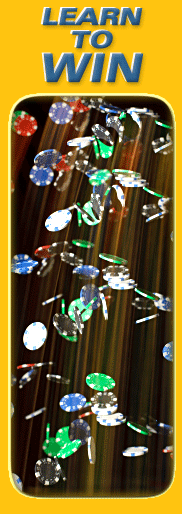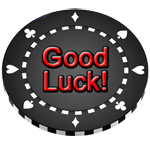Casino Math
by Frank Scoblete
This lesson is about Casino Math, house edge and ‘when you win, you lose’ for the Gambling Tips and Strategies program.
Have you heard the statement, “The casinos will win in the end?”
I’m sure you have.”
However, the odds, house edge, speed and number of decisions must be considered with casino math.
Therefore, the casinos win when the gamblers lose, of course, but the casinos win when the gamblers win as well!
Casino Math works like this:
Games are structured in two ways to give the casino the edge.
The casino can win more decisions than the player can or the casino can tax the player’s winning bets.
For example, in craps, for every 495 decisions, a Pass line or Come player will win 244 decisions but will lose 251 decisions on average. That seven-decision shortfall on the part of the player means the casino has a 1.41 percent edge on the game. That translates to every $100 bet this way, you can expect to lose $1.41 in the long run.
As house edges go, this is low, therefore Pass line and Come bets are good bets to make.
Moving to the worst bet on the craps table, the Big Red or Any 7 bet, we see how the casino utilizes a tax to generate profits.
In 36 rolls of two six-sided dice, the 7 will come up six times on average.
Casino players know that the 7 can be made in six different ways (1:6; 6:1; 2:5; 5:2; 3:4; 4:3). The probability of getting a 7 on any given roll is six in thirty-six or one in six.
That means for every 7 that shows, five non-7s will also show, making the odds on the 7 appearing five to one.
With a “fair game” or a game where nobody has an edge, a winning Any 7 bet would pay $5 for every winning $1 wagered. The player would lose $5 on the five $1 bets he lost and win $5 on the one bet he won, therefore, even in the long run.
However, the casino can’t make any money on the Any 7 bet if it pays off at five to one. So when you bet the Big Red or Any 7, the casino does not pay you the true odds of the bet.
Casinos pay you four to one. So you lose five time ($5) and win once ($4) and you are down a dollar. The casino keeps that extra dollar, so in this situation--when you win you lose.
Another example is the game of roulette. With the American double-zero wheel, there are 38 numbers on the wheel:
1 through 36 plus the 0 and 00.
Therefore, the probability of any one pocket hitting is one in 38 and the odds of winning are 37 to one. The casino pays $35 for every winning $1 bet, keeping $2. The house edge on roulette becomes 5.26 percent. Another examples of ‘when you win, you lose.’
Card games are complicated to analyze using casino math, as the number of combinations that can be made with a deck of cards are enormous.
For example, blackjack is a game where the casino wins more decisions. About 48% of the decisions are won by the casino, 44 percent by the player, and 8 percent are ties.
Why is blackjack such a close game? Because on those 44 player wins, the casino will sometimes pay more than even money with a blackjack, or it will permit the player to increase his bet in player-favorable gambling situations such as doubling down and splitting pairs.
But it isn’t enough to make the game a positive one for the players who face about a half percent edge in multiple-deck games, if correct strategy is used.
Nobody should be shocked that the casinos structure all their games so that they have the house edge or ‘when you win, you lose’.
For businesses to function, they must make profits.
The casinos are not interested in gambling on their games, they want the casino math on their side. The casinos sell their games to the players and it is up to the players to get the best bargain they can.
In conclusion, “the casinos win in the end,” because if they did not, there would not be any casinos or casino math.
That would leave players searching for casino-thrills in a world that often has limited thrills.
Casino Math is followed by Casino Money Games
OR
Return to Gambling Tips and Strategies
Gambling Teachers home
GT is attentive about getting the word out about our free programs, lessons and add-ons offered, however, we ask your assistance and consideration in promoting us.
Click link below that reads, "Enjoy this page? Please pay it forward. Here's how..." to add a link to your site, blog or personal page.





